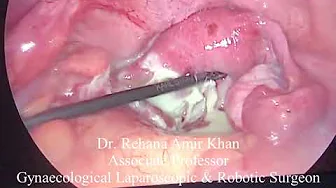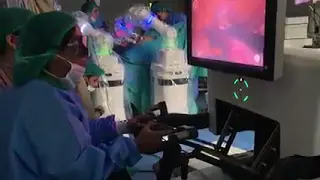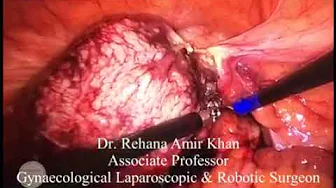Laparoscopic hysterectomy
LAPAROSCOPIC HYSTERECTOMY
Are you looking for an expert Laparoscopic surgeon in Lahore?
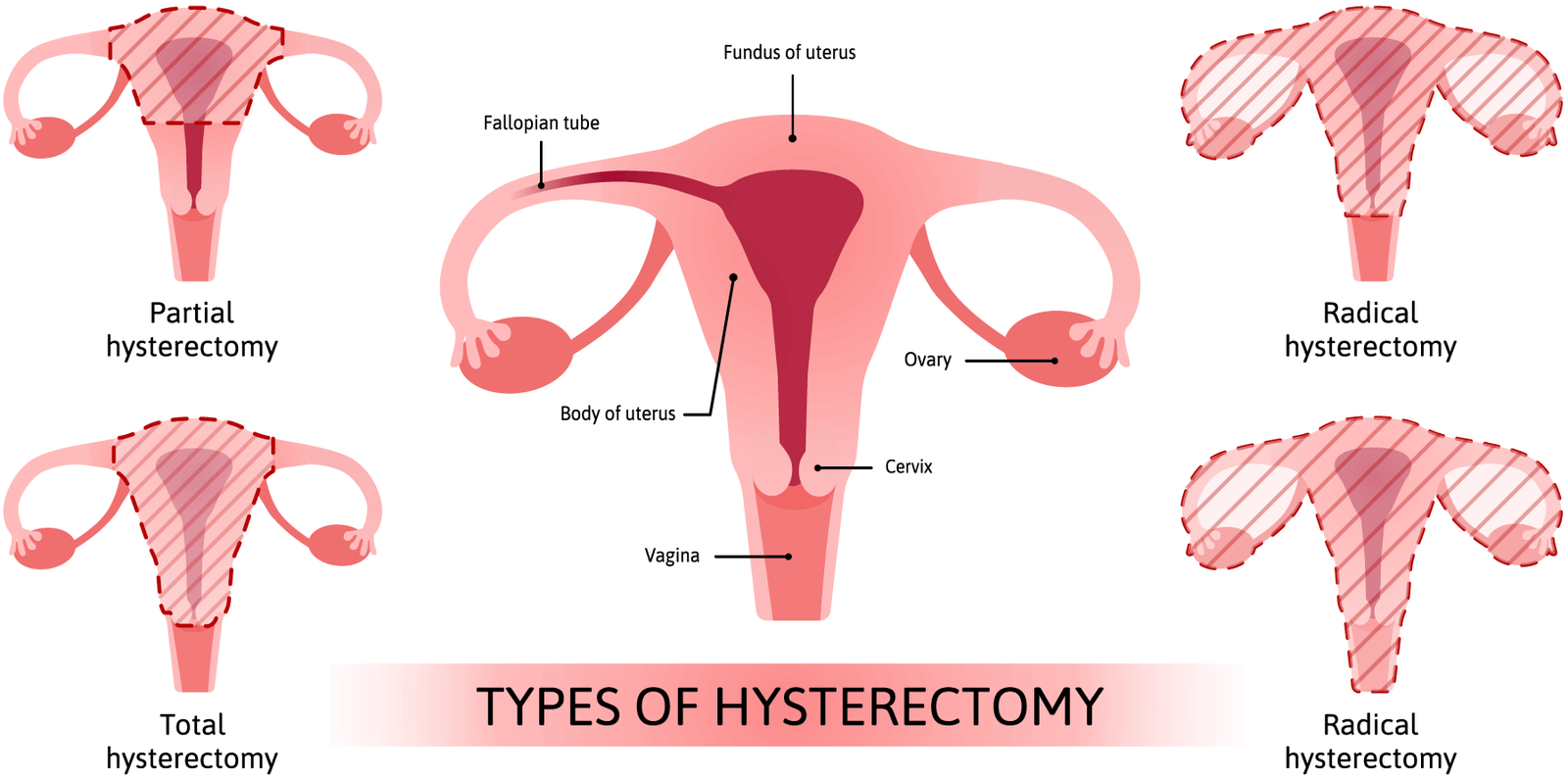
Then you are at the right spot, Best laparoscopic surgeon is right here to assist you out...!!!!
What do you need to know about Laparoscopic hysterectomy?
A laparoscope a thin tube with a camera on the end) is inserted into the lower abdomen through a small incision 5mm in the navel.
Robot-assisted laparoscopic hysterectomy
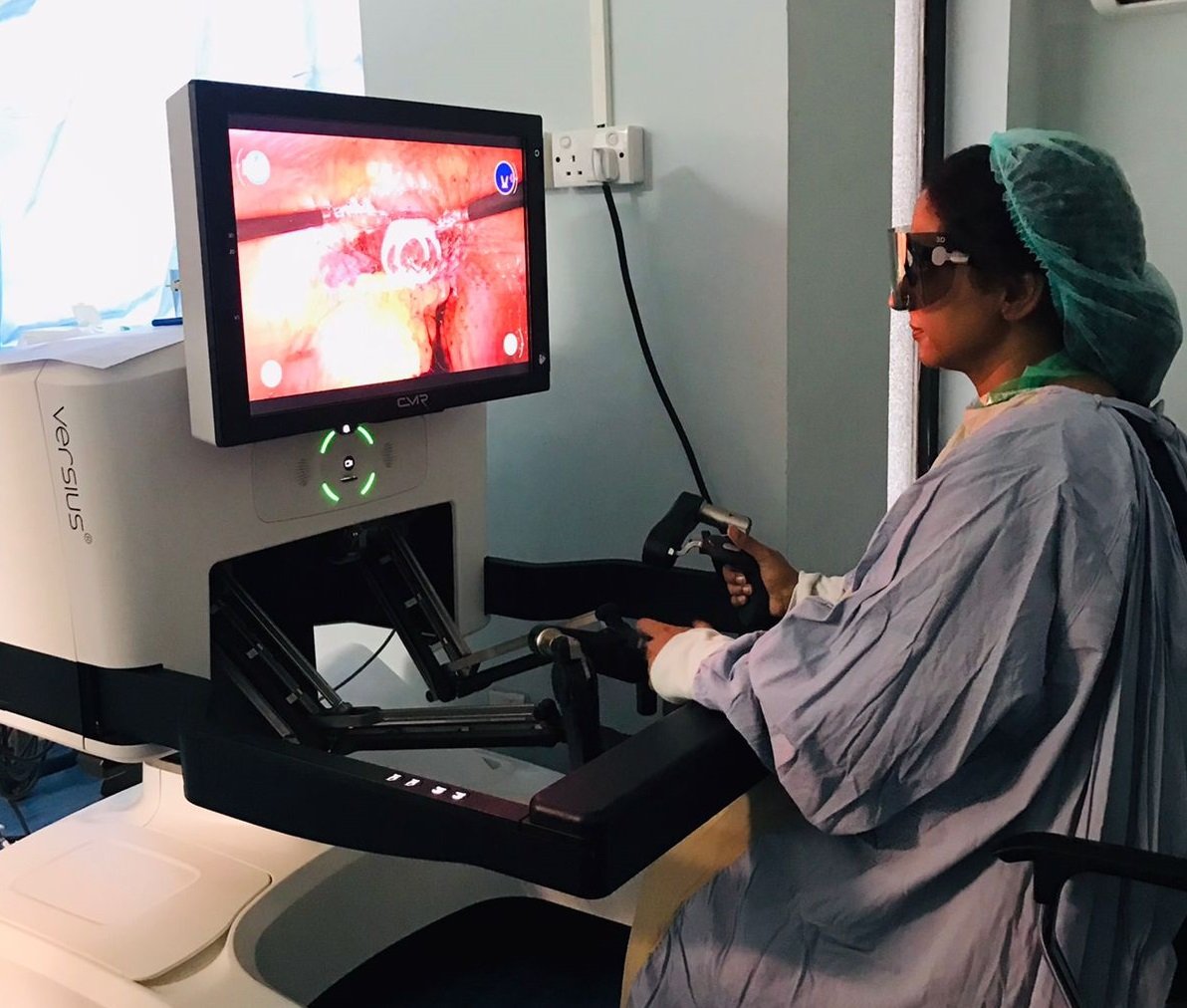

Abdominal hysterectomy
A hysterectomy is done through a six to eight-inch incision in the abdomen. The incision is made from the navel to the top of the pubic or pubic hairline. The surgeon will use sutures or staples to close the incision.
It usually requires a more extended hospital stay (two to three days) and a longer recovery time. Now a days laparoscopic hysterectomy is considered for better than abdominal hysterectomy because of fast recovery, shorter hospital stay, less risk of infections, early return to work and minimal need of pain killers after surgery.
LAPAROSCOPIC HYSTERECTOMY
Pros & Cons
Pros of Laparoscopic hysterectomy
A hysterectomy can help you live a more enjoyable life, especially if you have persistent pelvic pain or heavy irregular bleeding. If you have an increased risk of uterine cancer, a hysterectomy can reduce that risk and possibly save your life.
Cons of Laparoscopic hysterectomy
You may go into menopause or experience menopausal symptoms if your ovaries are removed. Also, you will not be able to get pregnant after surgery.
LAPAROSCOPIC HYSTERECTOMY
Complications of Laparoscopic Hysterectomy
As with any surgery, there is a small chance of problems. Problems may include:
This process takes one to three hours. The timing may vary, depending on the size of the uterus and the number of previous pelvis surgeries, and whether another disease has to be removed, such as endometriotic cyst or if laparoscopic hysterectomy is going to be performed for cancer of uterus or ovaries.
Some of the most common side effects of a hysterectomy are vaginal drainage (which can occur up to six weeks after surgery) and irritation at the incision site.
If you had your ovaries removed during a hysterectomy, you may experience menopausal symptoms such as:
Your doctor will discuss treatment options to avoid the menopause side effects described above.
The time you spend in the hospital after a hysterectomy depends on the type of surgery you had. Your healthcare provider will want to monitor you for signs of complications such as blood clots or bleeding. You will walk as soon as possible after surgery to prevent blood clots from forming in your legs.
If you had an abdominal hysterectomy, you may stay in the hospital for a few days. Vaginal and laparoscopic hysterectomies are less invasive and usually do not require an overnight stay.
Your healthcare provider will review your recovery instructions, including restrictions on your daily activities. Be sure to discuss any concerns you have about your rehabilitation or procedure.
Most people heal from a hysterectomy in roughly four to six weeks. Your recovery depends on the type of hysterectomy you had and how you had it. Recovery from vaginal and laparoscopic hysterectomy is shorter than recovery from an abdominal hysterectomy.
You should gradually increase your activity and pay attention to how you feel. If something hurts you, stop. Discuss with your healthcare provider specific instructions for recovering at home, including which medications to take.
Complete recovery after Laparoscopic hysterectomy takes about two to four weeks when you will get rid of vaginal discharge and spotting and can contact your doctor for resuming sexual activity. Recovery from an abdominal hysterectomy can take up to six weeks. Talk to your healthcare provider before you go home to make sure you know the best way to take care of yourself.
It is normal to experience bloating or gas after a hysterectomy. It may take several weeks for abdominal puffiness and swelling to subside. Talk to your healthcare provider about ways to reduce discomfort. Some exercise, heat packs, or dietary changes may help.
It depends on whether the ovaries have been removed. If your ovaries are still there after a hysterectomy, you won't go into menopause right away. If both ovaries are removed during a hysterectomy, you may go into menopause right away.
Generally, no, especially if you are considered to be at low risk of cervical cancer. If you have had a hysterectomy for cancer, you should continue to have a Pap test.


